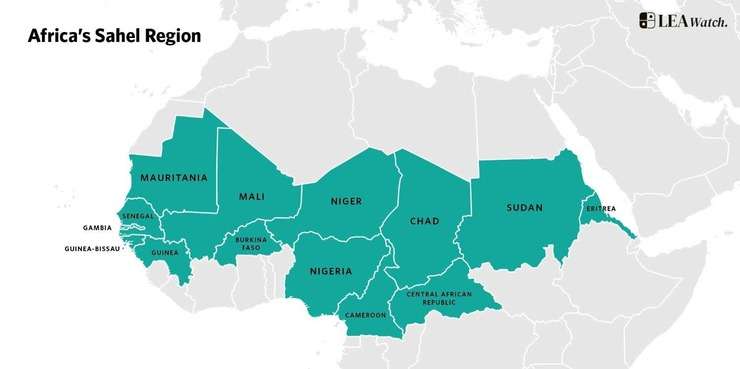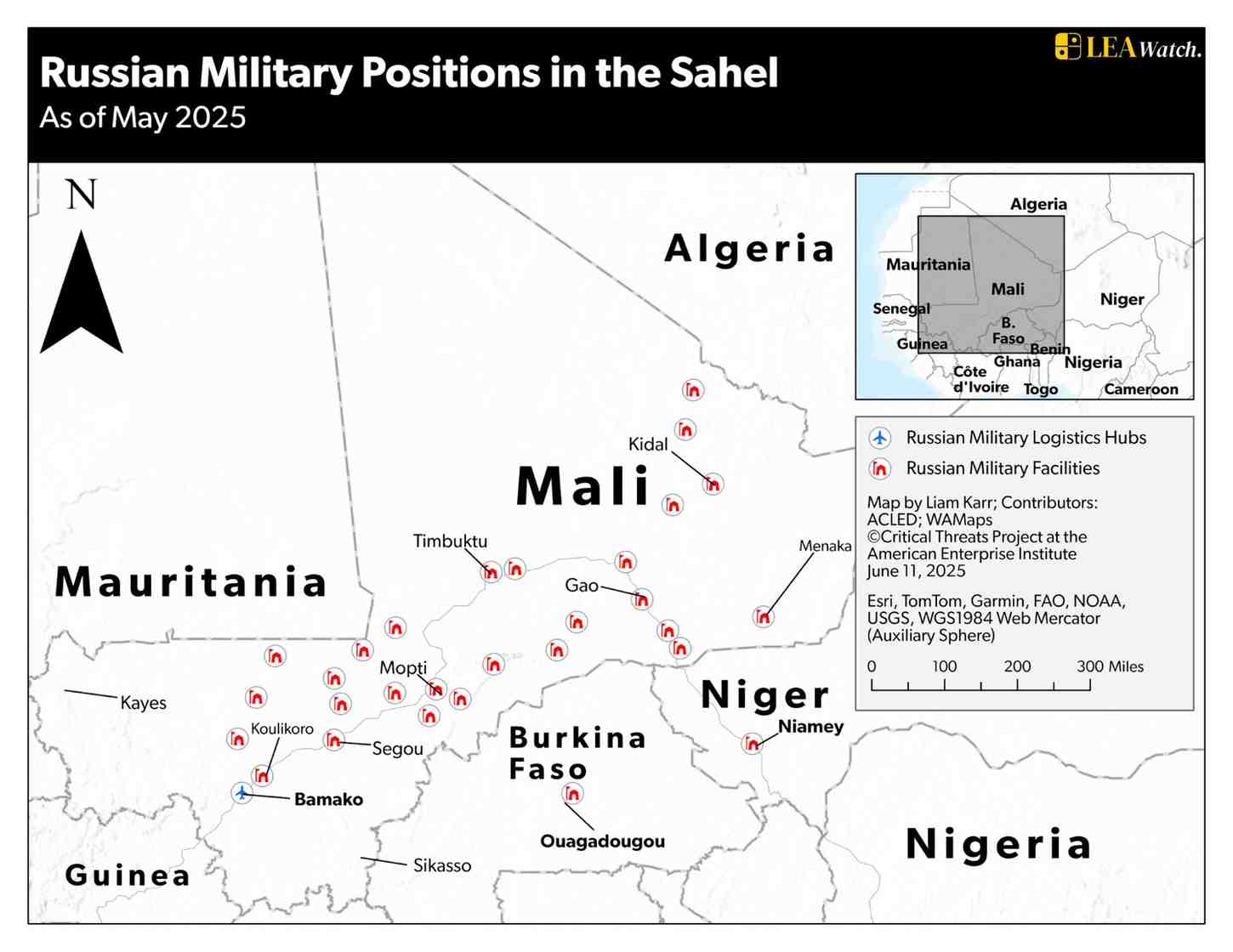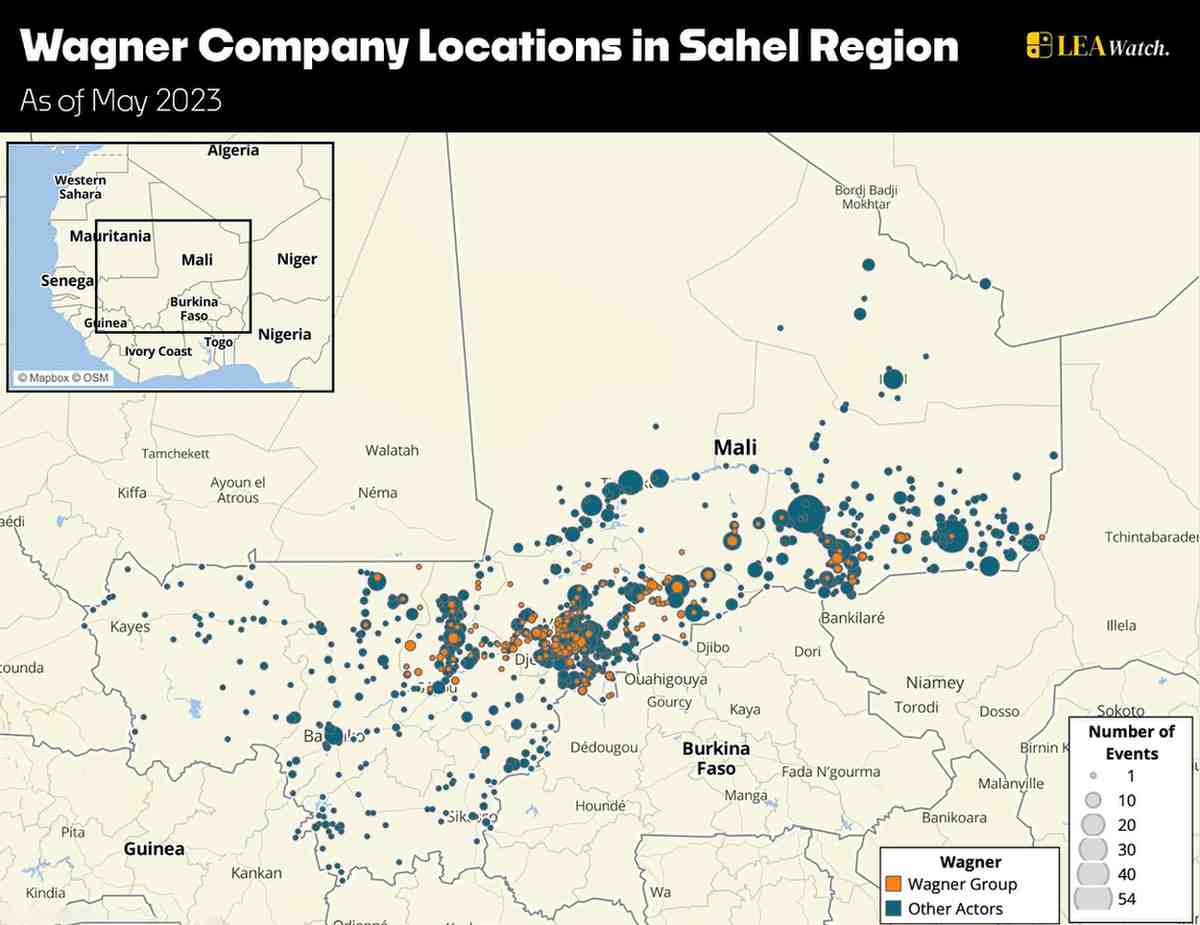The geopolitical landscape in the Sahel region is changing quickly and significantly, with Russian influence expanding rapidly in several critically located West African states, particularly Mali and Niger, with a series of military coups displacing Western influences. What was once a security related arrangement can now be characterized as a much broader strategic relationship with the use of military assistance, state propaganda, and resource deals.
Mali: The Ground Zero of Russia’s African Strategy
Timeline of Developments:
- 2021: Military coup topples democratic government
- 2021–2022: France withdraws; UN peacekeepers begin scaling down
- Late 2021: Wagner Group arrives to support the junta
- 2023: Battle of Kidal; Wagner-backed forces recapture rebel-held areas
- 2024–2025: Wagner transitions to Africa Corps post-Prigozhin
After the military coup in Mali in 2021, the nation broke relationships with France and kicked out the United Nations peacekeeping mission (MINUSMA). In place of MINUSMA, the Russian paramilitary forces, under the Wagner Group returned to the country. The mercenaries have now switched names, and go by the Africa Corps, a rebranded arm that is said to be under the direct control of the Ministry of Defence of Russia.
The presence of Russians has been essential to the Malian military offensives towards jihadist and separatist rebels. In particular, Wagner’s effort in the 2023 Battle of Kidal allowed the Malian army to recover Tuareg villages that had been lost by the Malian government for over a decade. But this military support from Russia has come at a hefty price.
Unbiased observers, journalists and human rights organisations have reported on atrocities and massacres of civilians including in Moura (2022) and Abeïbara (2024) allegedly committed by Wagner personnel supported by Malian ground forces. An obscured report prepared for the International Criminal Court (ICC) has detailed shocking video evidence of murder, torture and mutilations. The Kremlin is of course now denying any knowledge of this civilizational war and refers to its intervention as “anti-terror cooperation.”
For their security guarantees, Russian-associated businesses now control and have unfettered access to wealth from gold mines. The differences between these two actors is minimal, and as a result Russia’s financial economic footprint in the area is solidified and growing.
Resource Agreements:
Russia-associated companies have obtained mining concessions, including for the Morila Gold Mine gold mine.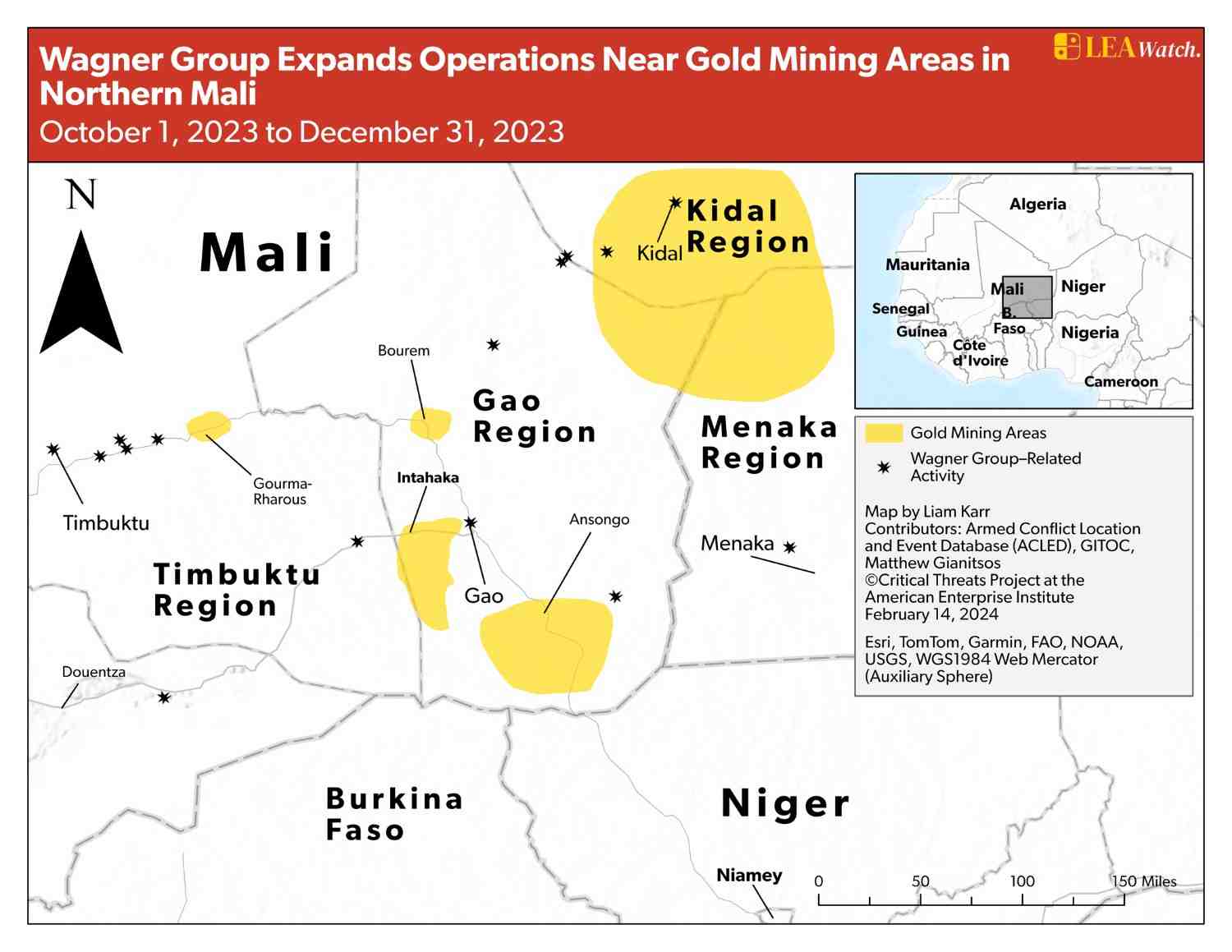
Pro-Russian channels such as “White Uncles in Africa” disseminated anti-French content and dons the Wagner interventions.
Niger: Russia’s New Strategic Prize
Timeline:
- July 2023: Military coup ousts President Mohamed Bazoum and installed a military council
- 2024: France and U.S. troops left Niger(forcefully). The drone base in Agadez was also expelled.
- 2025: Niger formally cooperates with Russia as it joins the AES.
The July 2023 coup catalyzed a significant decoupling between Niger and West-based partners. By the start of 2024, French and American troops, alongside personnel at the former French drone bases, had departed. In turn, the junta in Niamey moved toward Moscow, even joining the Alliance of Sahel States (AES), a regional military bloc alongside Mali and Burkina Faso.
In April 2025, Russia promised full military support to the AES’s plan to create a 5,000-strong joint anti-terror task force. Russia simultaneously provided shipments of fuel, wheat, and fertilizer to Niamey, a soft power gesture with strong geopolitical designations.
Wagner’s presence in Niger appears limited to date compared to Mali, but security analysts suggest Russia is using a façade of “technical cooperation” for Russian advisors and Africa Corps personnel already on the ground. The prize for Russia is uranium, with Niger contributing 5% of the world’s supply and vital to nuclear energy and weapons programs.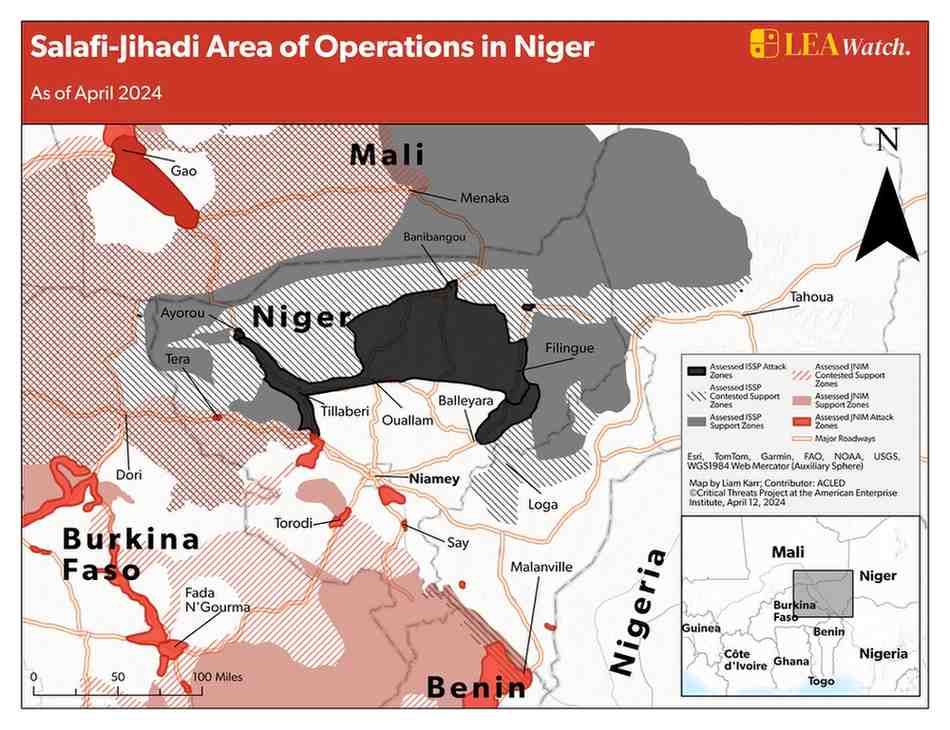
Strategic Value:
Niger is the world’s 7th leading producer of uranium. Niger supplies most of the world’s uranium with two main sites in Niger: Arlit and Akokan
Strategic Implications
Russia’s increasing involvement in Mali and Niger indicates a significant transformation of African security partnerships from collaborative stabilization administration driven chiefly by-western allies to counterinsurgency regimes aligned with authoritarian regimes. The Kremlin is not only replacing French troops; it is rewiring regional order by providing military protection, economic lifelines, and ideological underpinnings to military juntas.
For the West, the consequences are substantial:
- Loss of military bases and intelligence assets
- Broken counter-terrorism efforts to combat Al-Qaeda and ISIS-linked militants
- Emerging resource corridor under Russian influence
- Increase in potential refugee flows and transnational extremism
Furthermore, Sahelian societies remain caught in the crossfire, escalating civilian casualties and deepening political, social and economic consequences of democratic backsliding.
Wagner/Africa Corps Operations Model:
The Africa Corps works with Russia’s Ministry of Defence to continue Wagner’s work in Africa, now in a more formalized process. Recruitment is largely done through Telegram where opportunities are listed as security, allowing officials to hire ex-military and mercenary personnel from diverse countries throughout Eastern Europe and Africa. Supply routes mostly originate from Libya and Syria, and we can regularly track cargo flights via ADS-B Exchange, many of which are affiliated with sanctioned airlines or shell companies transporting various weapons. Wagner has acquired lucrative gold and diamond concessions in Mali and the Central African Republic in exchange for regime protection. In addition to the above media, Russian media is purposefully working with African influencers to create localized content that promotes stories around sovereignty, anti-imperialism, and anti-Western narratives strengthening Moscow’s soft power in the Sahel.
Conclusion:
What started with Russia seizing opportunity in a security vacuum, has turned into a growing and strategic foothold across the Sahel. With Mali acting as its military bastion and Niger, its pivot point, Russia is recasting geopolitics in West Africa and it’s doing so using a mixture of guns, gold, and geopolitical gamesmanship. The West is adjusting to the new landscape, and the Sahel remains precarious, a battleground of centuries old alliances fading, as new power solidifies the map. “The teacher (France/US) left the school (Sahel), and now a new teacher (Russia/Wagner) is taking over the classroom – but is giving weapons to students, choosing the class monitor, and taking the school’s gold as payment.”

